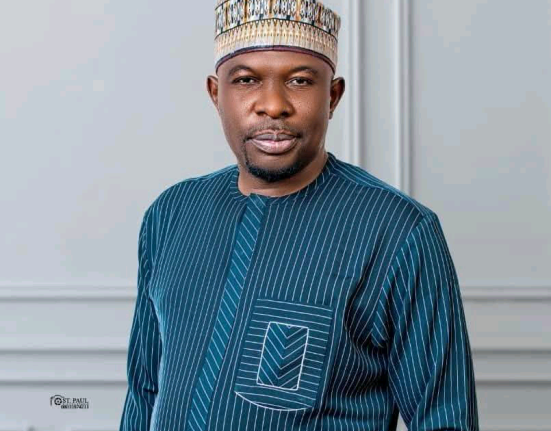
The Deputy Speaker of the House of Representatives, Benjamin
Kalu, has once again reignited national debate on the need for a state policing
system, insisting that Nigeria can no longer afford to delay reforms to its
security architecture.
Mr Kalu, who spoke with journalists in Abuja after returning
from Geneva, Switzerland, where he represented Nigeria at the 55th
Parliamentary Conference of the World Trade Organisation/Inter-Parliamentary
Union (WTO-IPU) Public Forum 2025, argued that the centralised model of
policing had overstayed its usefulness and was incapable of meeting Nigeria’s
complex security needs.
According to him, the State Police Bill before the National
Assembly must be treated with urgency, as it holds the potential to reduce
response time in tackling crimes and align Nigeria’s policing practices with
international standards.
He said, “On the State Police Bill that is before the
parliament, we are thinking about the response time of policing in Nigeria which
at the moment is below the global standard. The only way we can achieve this is
if we unbundle it from the way it is centralised like what other countries are
doing: Municipal police, State Police. And just the constitution is clear on
what is on the concurrent and exclusive lists.”
Mr Kalu noted that while some critics fear that state police
could be hijacked by governors or political actors, Nigerians should focus on
the bigger picture, strengthening security for the majority rather than
allowing fears of abuse by a few to hold the country back.
“So, we should be looking at the bigger picture. Everyone in
Nigeria may not be a politician but everyone needs security of lives and
property. So, we are saying which one should we go for? The greater good or the
fear of the minor threat? I think we should go for the greater good so that the
good in the majority will suppress the threat in the minority,” he added.
Growing demand for
state police
For years, the call for state police has dominated Nigeria’s
security discourse. Rising insecurity in different regions has made it
increasingly clear that the centralised policing system is overstretched and
unable to provide timely responses across the country.
In the North-west, banditry and mass kidnappings,
particularly in Zamfara, Katsina, Kaduna, and Sokoto have overwhelmed the
federal police, leaving communities vulnerable.
In the North-east, the military remains heavily engaged
against Boko Haram and ISWAP, but localised policing is still weak.
The North-central faces farmer-herder clashes, communal
violence, and rising insecurity in Plateau, Benue, and Niger states.
In the South-east, separatist agitations and violent attacks
linked to “unknown gunmen” have created a climate of fear, with state
governments arguing that a localised police force would respond more
effectively.
The South-west has had relative peace but remains concerned
about cross-border crimes, kidnappings, and the infiltration of criminal
groups, prompting the region to create the Amotekun security outfit as a
stopgap.
In the South-south, oil theft, piracy, and militancy
continue to threaten economic stability, making security decentralisation a
recurring demand from states such as Rivers and Bayelsa.
Meanwhile, in the FCT and other urban centres, rising armed
robbery and cultism underscore the need for policing tailored toward local
realities.
There were arguments that decentralising police powers would
enable states to recruit officers familiar with their terrain and language,
thereby improving intelligence gathering and trust between communities and law
enforcement.
To deepen national conversations on the issue, Mr Kalu
disclosed that the parliament has scheduled a public hearing on the State
Police Bill on Monday, inviting Nigerians across the country to share their
views.
Standing with Tinubu
on bold economic reforms
Beyond security, the deputy speaker also addressed Nigeria’s
economic direction under President Bola Tinubu.
He praised the president for the courage to remove fuel
subsidy and push through other difficult reforms, describing them as necessary
sacrifices to reposition the economy.
Mr Kalu recalled that in the early days of subsidy removal,
there were widespread fears that the country would slip into recession. Yet, he
argued, Nigerians stood resilient, adapting to the realities of rising costs in
the hope of long-term stability.
He said the courage displayed by Mr Tinubu has begun to
yield dividends, pointing to improved revenue mobilisation and increased
diversification efforts at the state level.
Pushing Africa’s
digital trade agenda
Mr Kalu also drew attention to his role in shaping global
trade discussions at the World Trade Organisation/Inter-Parliamentary Union
(WTO-IPU) Forum in Geneva.
Nigeria, he said, was one of only eight countries
represented on the steering committee on digital trade, which explored how
emerging digital economies could drive inclusive growth.
He argued that for Africa’s flagship integration project,
the African Continental Free Trade Agreement (AfCFTA), to succeed, digital
trade must be positioned at its core.
“Digital trade is taking the day across the world at the
moment, increasing economic growth by about 25 per cent. We must fit into this
space, both globally and as a continent,” he said.
Mr Kalu revealed that Nigeria and other African delegations
successfully pushed for Afrocentric issues to be placed on the agenda for the
upcoming WTO Ministerial Conference (MC14) in Yaoundé, Cameroon, in March 2026.
Reserved seats for
women
The Deputy Speaker also reaffirmed his commitment to the
Reserved Seats Bill, a proposed constitutional amendment to increase women’s
representation in parliament.
He emphasised that Nigeria’s democracy remained incomplete
while women, who make up nearly half the population, continued to be
marginalised in decision-making.
“You cannot talk about advancing democracy when you’re
leaving 50 per cent of the population outside the room. It makes policies
one-sided,” he said.
He pointed out that issues such as child rights, women’s
rights, and humanitarian concerns often receive more serious attention when
women are part of the legislative process.
He revealed that he and 12 other lawmakers were sponsoring
the bill and that advocacy had begun early in the life of the current Assembly
to give it a higher chance of success compared to past attempts.
The Abuja
contractors’ dispute
Mr Kalu also highlighted his use of “legislative diplomacy”
in managing domestic disputes, particularly the crisis involving local
contractors in the Federal Capital Territory (FCT) who threatened to down tools
over unpaid fees.
He explained that intervention meetings convened by Speaker
Abbas Tajudeen with the Minister of Finance, Wale Edun, the Accountant General
of the Federation, Shamsudeen Ogunjimi, and other stakeholders resulted in the
release of payments that pacified the contractors.
“We took the contractors off the streets. They kept their
word not to return to protest, and government has kept its word by paying. We
will review the situation again on the 21st of September to ensure progress
continues,” Mr Kalu said.
On the persistent waste management crisis in Abuja, he
promised to personally engage the Minister of the FCT to avert further
disruptions, reminding residents that the National Assembly serves as their
legislature since the territory lacks a state assembly.
Diaspora voting and
national priorities
On diaspora voting, Mr Kalu reiterated his long-standing
support for Nigerians abroad to participate in elections but cautioned that the
country must first strengthen its domestic electoral system.
“Rome was not built in a day,” he said. “It will happen, but
we must first put our house in order. If Nigerians say during constitutional
amendment hearings that they want it, we will look at the possibility,” he
explained.
Despite his growing profile on the international stage,
having been invited for further engagements at Harvard and Ben Kalu
Massachusetts Institute of Technology (MIT), Mr Kalu insisted that Nigeria
remains his top priority.
Click to signup for FREE news updates, latest information and hottest gists everyday
Advertise on NigerianEye.com to reach thousands of our daily users








Leave feedback about this